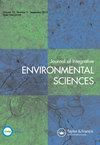瑞典农业食品生产创新的可持续商业模式概述
IF 3.5
4区 环境科学与生态学
Q3 ENVIRONMENTAL SCIENCES
Journal of Integrative Environmental Sciences
Pub Date : 2018-12-12
DOI:10.1080/1943815X.2018.1554590
引用次数: 35
摘要
农业食品行业的公司面临越来越大的压力,他们需要采用可持续的商业模式,不仅要考虑经济方面,还要考虑社会和环境方面。本文考察了瑞典食品生产商如何使用可持续的商业模式来创新他们的业务。实证数据来自204家公司的电话调查和4家公司的案例研究。采用可持续创新的概念框架和八个可持续商业模式原型,对可持续创新实践和可持续商业模式进行了映射和分析。结果显示,令人惊讶的是,许多公司都关注可持续的业务,不仅关注优化,还关注组织转型和系统建设。结果显示,这些公司在匹配原型方面存在差异。最常见的原型匹配是“最大化材料和能源效率”和“采取管理角色”。只有10%的人仅仅从财务角度来衡量成功,而80%的人同时从财务角度以及社会和环境角度来衡量成功。另一个结论是,农业食品领域的公司具有独特的特征,企业家的价值意图是可持续商业模式创新的重要组成部分。本文章由计算机程序翻译,如有差异,请以英文原文为准。
An overview of sustainable business models for innovation in Swedish agri-food production
ABSTRACT Companies in the agri-food sector are under increasing pressure to adopt sustainable business models that consider not only economic but also both social and environmental aspects. This paper examines how Swedish food producers use sustainable business models to innovate their businesses. The empirical data comes from a telephone survey with 204 companies and from case studies of 4 companies. A conceptual framework regarding sustainability-oriented innovation (SOI) and a eight sustainable business model archetypes are used to map and analyse the sustainability innovation practices and the sustainable business models. The results show a surprisingly sustainable business focus taken by many companies, which is not only on optimization, but also on organizational transformation and on systems building. The results show the companies vary as far as which archetypes they match. The most common archetype matches are ‘Maximise material and energy efficiency’ and ‘Adopt a stewardship role’. Only 10% measure success solely in financial terms, while 80% measure success in financial terms as well as social and environmental terms. Another conclusion is that companies in the agri-food sector have unique characteristics and the value intention of the entrepreneurs is an important building block in sustainable business model innovation.
求助全文
通过发布文献求助,成功后即可免费获取论文全文。
去求助
来源期刊

Journal of Integrative Environmental Sciences
ENVIRONMENTAL SCIENCES-
CiteScore
3.90
自引率
0.00%
发文量
13
审稿时长
>12 weeks
期刊介绍:
Journal of Integrative Environmental Sciences (JIES) provides a stimulating, informative and critical forum for intellectual debate on significant environmental issues. It brings together perspectives from a wide range of disciplines and methodologies in both the social and natural sciences in an effort to develop integrative knowledge about the processes responsible for environmental change. The Journal is especially concerned with the relationships between science, society and policy and one of its key aims is to advance understanding of the theory and practice of sustainable development.
 求助内容:
求助内容: 应助结果提醒方式:
应助结果提醒方式:


